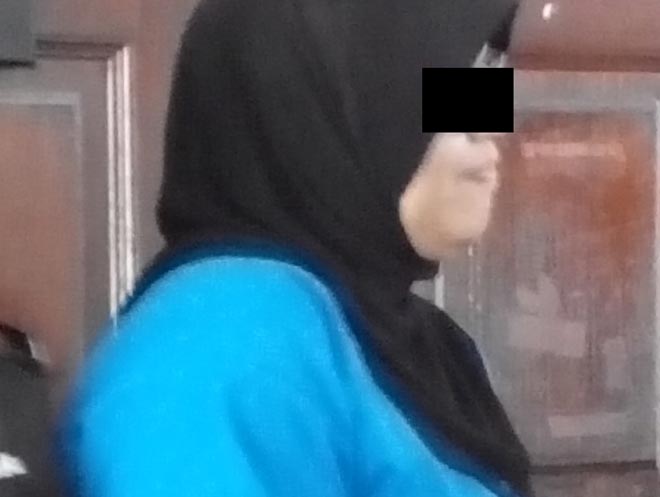
Kee Noorayudah
KOTA KINABALU: The High Court here fixed October 1 this year for its decision on an appeal by a woman against a 12-year jail sentence for cheating that involved close to RM100,000.
Judicial Commissioner Gabriel Gumis set the date to deliver his ruling on Kee Noorayudah Mohd Ayub, 26, after hearing submissions from the appellant and respondent yesterday.
Kee, who was defended by counsel Hamid Ismail, was first sentenced by the lower court on October 29 last year and was subsequently charged on December 6 and 7 the same year respectively, after she pleaded guilty to all the charges under Section 420 of the Penal Code.
The indictment provides for a maximum jail sentence of 10 years or a fine and with whipping, upon conviction,
The appellant admitted to deceiving seven victims under the pretext of selling houses under the Housing and Town Development Board (LPPB), claiming that she could help them process their applications.
The offences were committed between February and September last year at several places in the city area.
Earlier during submission, counsel Hamid Ismail submitted two grounds of appeal that 12 of the charges against his client were null and void, and that the lower court had imposed manifestly excessive sentences in view of the facts and circumstances of the case.
On the first ground of appeal, Hamid submitted that there had been a breach under Section 164(1) of the Criminal Procedure Code (CPC) in regard to the way his client had been charged.
The provision states that when a person is accused of committing more than one similar offence within 12 months, whether or not the offence was committed on the same person, the accused may be charged with and tried at the same time for a maximum of three of the offences.
However, said Hamid, his client had been simultaneously charged with 11 offences on October 29, 2013 alone.
In addition, his client was again charged with six offences in a single hearing on December 2 of the same year.
Therefore, Hamid submitted that there had been a clear breach of Section 164(1) of the CPC as all the offences his client was charged with occurred within a 12-month period.
Hamid added that his client’s guilty plea to all the charges should not have been recorded as they were null and void, and he implored the court to set aside the conviction and sentence for the charges.
On the second ground of appeal, Hamid submitted that the lower court had imposed a manifestly excessive sentence on two of his client’s charges.
In both cases, said Hamid, his client received five years’ jail which was deemed excessive in view of the facts of the case and the sentences imposed on his client in other similar cases.
Hamid argued that the amount of money involved in the two cases in question, which are RM8,000 and RM3,000 respectively, do not justify the five years’ imprisonment term.
He stressed that this was due to the fact that in two other charges, the amount of money involved was RM8,370 and RM9,900 each, but the jail sentences imposed were only one year and 14 months respectively.
Conclusively, Hamid implored the court to quash the conviction on his client as submitted in his first ground of appeal and asked the court to reduce his client’s jail term as submitted in his second ground of appeal.
In reply, deputy public prosecutor Afzan Abd Kahar urged the court to dismiss the appellant’s appeal.
On the first ground of appeal, Afzan argued that there was no misconduct on the part of the lower court in charging the appellant simultaneously, as the offences were committed during the same transaction.
Afzan added that it was not wrong for the lower court to charge the appellant for more than three offences in one hearing as it would save the court’s time and cost, especially since each conviction involved the same witnesses.
Afzan also affirmed that the cases were called one by one and the nature and consequence of each charge was explained to the appellant, therefore asserting that there was no miscarriage of justice.
Moreover, said Afzan, it is entirely in the lower court’s discretion to hear all the cases together in one sitting.
On the second ground of appeal, Afzan defended that the sentences imposed were not excessive as there are sentences that run concurrently even though it involved different victims.
Considering all the charges and victims involved, added Afzan, she disputed that the sentences imposed were excessive and applied for them to be maintained.
